Filter by
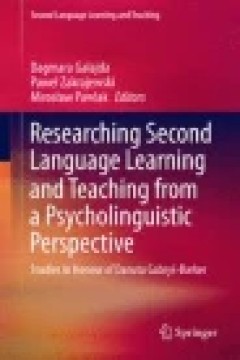
Researching Second Language Learning and Teaching from a Psycholinguistic Per…
This edited collection explores the processes of second language learning and teaching from a psycholinguistic perspective. Authored by leading experts in the field, the book includes studies focusing on theoretical, empirical and practical aspects of second and foreign language education. Part One offers contributions devoted to a range of learner-related factors, dealing with affective and co…
- Edition
- Ed. 1
- ISBN/ISSN
- 978-3-319-31954-4
- Collation
- -
- Series Title
- -
- Call Number
- -
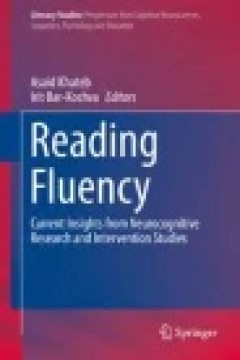
Reading Fluency: Current Insights from Neurocognitive Research and Interventi…
The book is dedicated to the blessed memory of Prof. Zvia Breznitz, whose groundbreaking research has made a tremendous impact on the understanding of fluency in reading. The book presents a multidimensional perspective of recent research and reviews on fluency in reading. The first part presents recent brain-imaging findings from studies into the neurobiological basis of reading, as well as co…
- Edition
- 1
- ISBN/ISSN
- 978-3-319-30478-6
- Collation
- XV, 161
- Series Title
- Literacy Studies
- Call Number
- 407
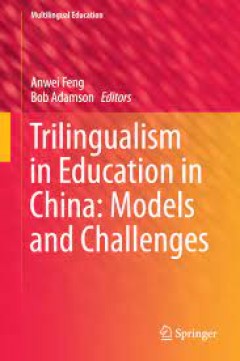
Trilingualism in Education in China: Models and Challenges
This book examines language policies and practices in schools in regions of China populated by indigenous minority groups. It focuses on models of trilingual education, i.e. education in the home language, Putonghua (Mandarin Chinese, the national language), and English (the main foreign language). Special attention is given to the study of the vitality of the minority home language in each reg…
- Edition
- -
- ISBN/ISSN
- 978-94-017-9352-0
- Collation
- -
- Series Title
- -
- Call Number
- -
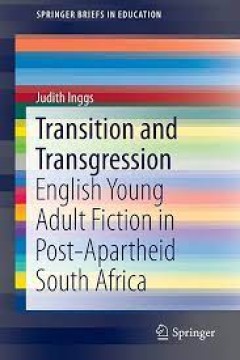
Transition and Transgression English Young Adult Fiction in Post-Apartheid S…
This book conveys the story of a society in the throes of restructuring itself and struggling to find a new identity. A particularly attractive aspect of this study is the focus on young adult literature and its place in post-apartheid South Africa, as well as its potential use in the classroom and lecture hall. Intersecting these two topics provides a compelling lens for refocusing debate on …
- Edition
- -
- ISBN/ISSN
- 978-3-319-25534-7
- Collation
- -
- Series Title
- -
- Call Number
- -
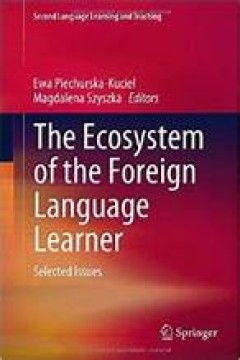
The Ecosystem of the Foreign Language Learner
This volume examines selected aspects of the foreign language learning process from an ecological perspective, adopting a holistic view on complex interrelations among and within organisms (L2 language learners) and their milieus (family, school and society). First of all, the personal ecosystem of the learner is taken into consideration, whereby two powerful influences are intertwined: cogniti…
- Edition
- 1
- ISBN/ISSN
- 978-3-319-14334-7
- Collation
- XV, 200, 2 illustrations in colour
- Series Title
- Second Language Learning and Teaching
- Call Number
- -
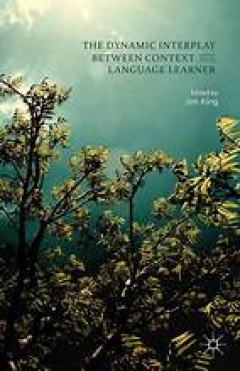
The Dynamic Interplay between Context and the Language Learner
This edited volume offers a series of state-of-the-art conceptual papers and empirical research studies which consider how contextual factors at multiple levels dynamically interact with individuals to influence how they go about the complex business of learning and using a second language.
- Edition
- 1
- ISBN/ISSN
- 978-1-137-45713-4
- Collation
- XIX, 251
- Series Title
- -
- Call Number
- -
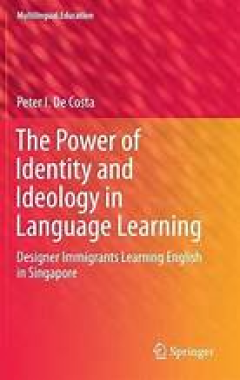
The Power of Identity and Ideology in Language Learning
This critical ethnographic school-based case study offers insights on the interaction between ideology and the identity development of individual English language learners in Singapore. Illustrated by case studies of the language learning experiences of five Asian immigrant students in an English-medium school in Singapore, the author examines how the immigrant students negotiated a standard En…
- Edition
- 1
- ISBN/ISSN
- 978-3-319-30211-9
- Collation
- XVII, 173, 1 b/w illustrations
- Series Title
- Multilingual Education
- Call Number
- -
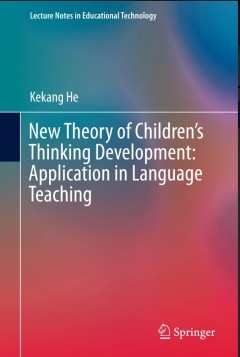
New Theory of Children’s Thinking Development: Application in Language Teac…
This book proposes a new theory on children’s thinking (cognitive) development. According to this theory, the stages of said development should be divided into four stages: first, the stage of animalistic thinking (birth–before possessing basic language ability); second, the stage of elementary thinking (beginning to possess basic language ability–beginning to possess proficient oral abil…
- Edition
- 1
- ISBN/ISSN
- 2196-4963
- Collation
- XI, 246
- Series Title
- Lecture Notes in Educational Technology
- Call Number
- -
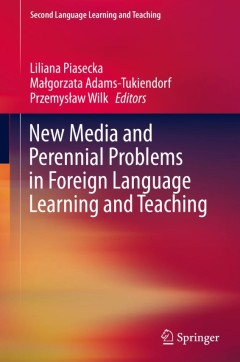
New Media and Perennial Problems in Foreign Language Learning and Teaching
The book concerns the ways in which the new media shape communication along with educational expectations and practices in foreign language classrooms. Although foreign language learners have cheap and easy access to information and ways of communication, they also wrestle with problems that have always accompanied language learning. The focus of the book is two-fold. On the one hand, the autho…
- Edition
- 1
- ISBN/ISSN
- 978-3-319-07685-0
- Collation
- XVI, 228
- Series Title
- Second Language Learning and Teaching
- Call Number
- -
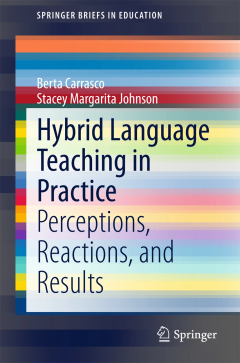
Hybrid Language Teaching in Practice: Perceptions, Reactions, and Results
This book allows readers to explore the inner workings of a hybrid class from the perspectives of two instructors with different pedagogical orientations, from the students’ perspectives, including learning outcomes and immediately practical teaching tools. The authors meet the challenge of how to preserve pedagogy and content while making good use of digital tools and online opportunities. L…
- Edition
- -
- ISBN/ISSN
- 978-3-319-16425-0
- Collation
- XI, 82
- Series Title
- -
- Call Number
- 370 HYB
 Computer Science, Information & General Works
Computer Science, Information & General Works  Philosophy & Psychology
Philosophy & Psychology  Religion
Religion  Social Sciences
Social Sciences  Language
Language  Pure Science
Pure Science  Applied Sciences
Applied Sciences  Art & Recreation
Art & Recreation  Literature
Literature  History & Geography
History & Geography